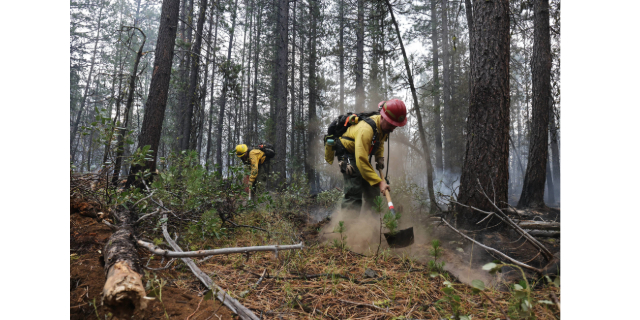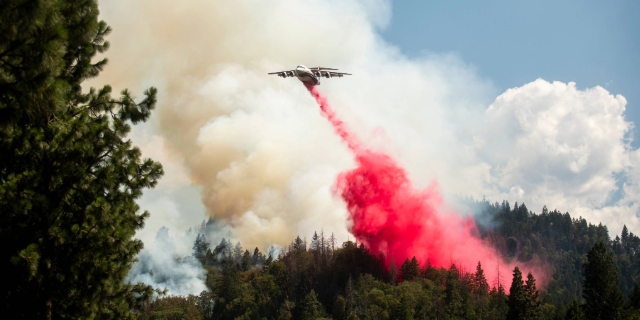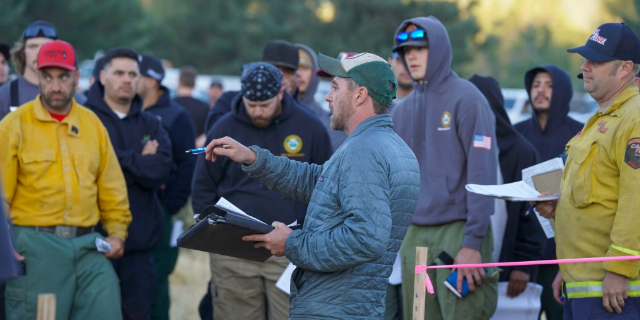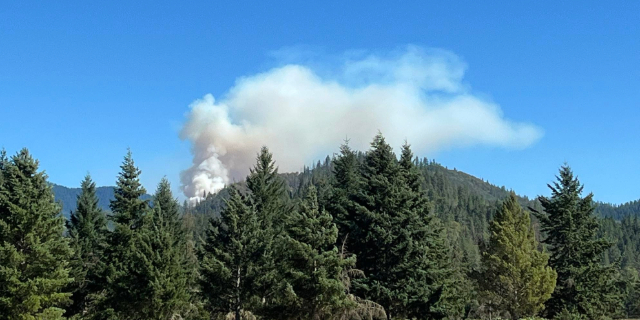Bottles and cans: Oregon lawmakers reveal plan to pay for urgent wildfire costs
Published 11:16 am Thursday, March 20, 2025

- The Bull Fire in Sunriver burned in Central Oregon in the summer of 2024.
State Sen. Jeff Golden, D-Ashland, also proposes holding back the state’s ‘kicker’ to help fund wildfire needs
State Reps. John Lively and Bobby Levy have introduced a bipartisan proposal to fund wildfire prevention and suppression in Oregon that largely mirrors a set of recommendations that emerged from a task force that met on the topic over the past year.
House Bill 3940 would create a 5-cent surcharge on bottles and cans to raise money for the Department of the State Fire Marshal, dedicate money raised by an insurance tax to pay for wildfire prevention and set aside money from the state’s reserves.
Trending
Lively, a Springfield Democrat, said the bill is just a starting point for conversations about wildfire prevention and mitigation funding. His goal isn’t necessarily to pass all of the funding streams proposed in the bill, he said, but to try and find consensus around one or more of them.
It’s an unusual approach, said Sen. Jeff Golden, an Ashland Democrat, who like Lively, Levy and Sen. Fred Girod, monitored a 35-member group of lawmakers, timber representatives, environmentalists and others which debated possibilities to raise money for wildfire funding and mitigation.
“The final recommendation was not a specific proposal, it was more of a menu, and that’s what the bill is,” Golden said. “I’m curious to see how Legislators react to that.”
The work group was tasked with finding at least $280 million a biennium to spend on wildfire mitigation and suppression, in the face of increasingly expensive wildfires. The 2024 wildfire season burned a record 1.9 million acres and fighting the blazes cost upwards of $350 million.
The group estimated that in the 2025-2027 budget cycle:
A 5-cent bottle fee would raise $200 million. The insurance tax will raise $140 million. A set-aside from the ending fund balance equal to .5% of general fund revenues would raise $164 million. Setting aside half of the expected 2025-27 transfer to the state rainy day fund would raise $299 million.
Trending
The bill also proposes to raise forest harvest taxes that pay for wildfire and lower the how much grazing land owners pay for fire protection from the Oregon Department of Forestry.
Forestry representatives and ranchers who participated in the work group said Tuesday that they are generally supportive of the bill, though they spotted some technical issues in the drafting.
“I think we’re heading in a good direction,” said Chris Edwards, president at the Oregon Forest Industries Council.
Eastern Oregon rancher Mark Bennett said a proposal in the bill to fix the price that grazing land owners pay to participate in rural fire protection districts at 30 cents per acre would afford some relief and stability to those rural landowners.
“There’s a lot of things in (the bill) that are really positive,” Bennett said. “It also starts to shift that the fires are not only the landowners responsibility but also all of Oregon’s responsibility.”
Girod, a Silverton Republican, called the bill “a good starting point.” He hadn’t seen the final bill before it was unveiled by House members and said he expects it will undergo revisions as lawmakers and stakeholders negotiate its contents in the coming months.
“There’s some give and take in it, which is nice,” Girod said. “I think it’s a very good first step.”
The bottle tax is “a hard one for me to swallow,” said Girod. But he favors diverting the existing insurance tax to fund wildfire issues.
Girod also has advocated that Oregon use money from its lottery funds to pay for wildfire needs. He has a separate bill proposing that idea, but he’s not optimistic about its chances this session.
Also missing from the funding proposal is an idea by Golden, the Ashland Democrat, to hold back the “kicker,” a pot of state revenue that exceeds state economists’ official forecast and typically goes back to voters, to fund wildfire needs. Golden has proposed this in a separate bill, but adjusting the kicker would require two-thirds of lawmakers in both chambers to back the idea, he said. That means he would need to rally all Democrats, and some Republicans, to his cause. That bill was referred to the Senate Committee on Finance and Revenue earlier this month, but has not yet been scheduled for a public hearing.
Golden plans to keep fighting for his kicker proposal, he said Tuesday. He wants it to be an alternative for funding wildfire suppression and mitigation if House Bill 3940 doesn’t get through or doesn’t raise enough money. Golden is concerned that pressure on the state’s general fund and the looming threat of federal funding cuts could make some of the funding proposals in the House bill “really hard to pass.”
“My single big need is to leave this session with adequate wildfire funding. I think we are foolish and irresponsible if we don’t do that,” he said.









